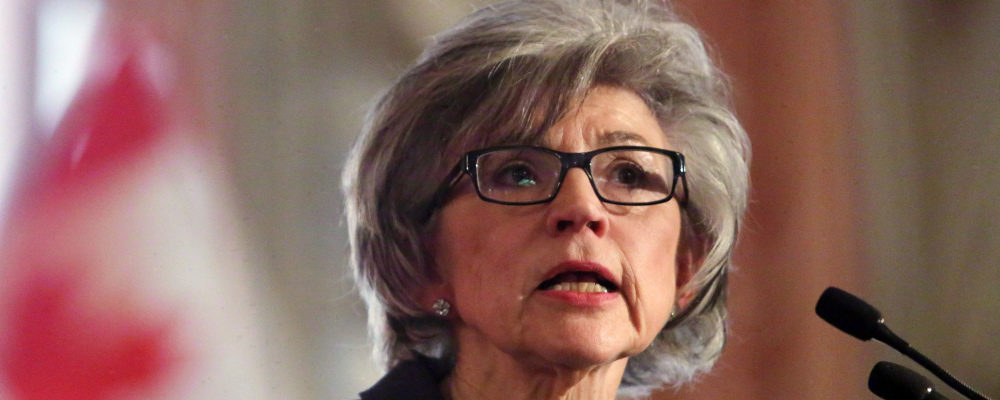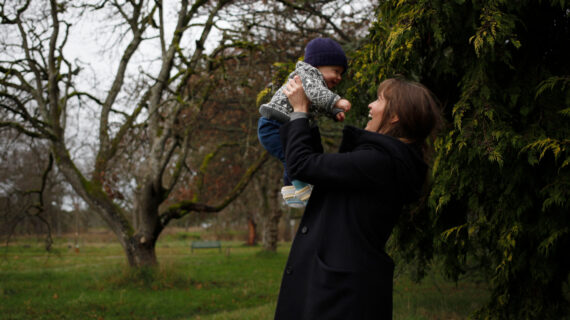Canadian judges carry a great deal of power. But as Uncle Ben so eloquently said, with great power comes great responsibility. Part of that responsibility includes a need to protect judicial independence and impartiality, including the perception that judges can decide cases with freedom from influence. Importantly, judges themselves should guard against the indirect use of their positions by those who have other agendas. This is already a problem in Canada: former Supreme Court judges have been “consulted” for scandals across the board, from SNC-Lavalin to controversies at the University of Toronto.
This is why it is disturbing that former Chief Justice Beverly McLachlin has not yet resigned from the Hong Kong Court of Final Appeal. Canadian lawyers should be encouraging McLachlin to resile from the weaponization of her prestige for China’s ends.
The situation in Hong Kong is abhorrent. For the last number of years, the Chinese government has cracked down on pro-democracy protestors in Hong Kong, leading to violence. This is happening as China has increasingly exercised more control over Hong Kong, passing the sweeping national security law, and clamping down on rights and freedoms. To Western eyes, the aggression appears comparable to the travesty at Tiananmen Square—which, to this day, is formally prohibited from discussion in China.
One victim of this repressive crackdown was Hong Kong’s independent judicial system. Once vaunted as an example of Hong Kong’s commitment to the rule of law, the court includes 10 foreign “non-permanent judges.” The inclusion of judges from foreign jurisdictions like Canada and the United Kingdom was part of the bargain struck in 1997 between China and the U.K. when Hong Kong was transferred to China. For McLachlin, one of the big selling points of the court was the impartiality of its foreign judges.
Impartial the judges may be, but the system itself is no longer independent from China, and McLachlin’s comments now seem like wishful thinking. In 2021, a Chinese official overseeing the national security law claimed that the Hong Kong judiciary “must highly manifest the national will and national interest…”1Hong Kong’s courts should reflect China’s will, says official https://www.theguardian.com/world/2021/jun/30/hong-kong-legal-system-should-reflect-china-will-says-official And for this reason, other foreign judges of the Hong Kong court were concerned about perception. In a statement from Lord Reed, president of the U.K. Supreme Court, he announced that judges of his court could no longer sit in Hong Kong “without appearing to endorse an administration which has departed from values of political freedom, and freedom of expression, to which the Justices of the Supreme Court are deeply committed.”2Role of UK Supreme Court judges on the Hong Kong Court of Final Appeal – update https://www.supremecourt.uk/news/role-of-uk-judges-on-the-hong-kong-court-of-final-appeal-update-march-2022.html
Why hasn’t McLachlin made this same judgment?
The question is not unfair. McLachlin has spent a career in Canada advocating for human rights, speaking out against “cultural genocide,” and encouraging moral diversity. She was a long-time member of a court that one of her former colleagues—dramatically—referred to as the final forum for adjudication of “which contested values in a society should triumph.” In a country like China, where there are independent legal observers warning about ongoing genocide,3Chinese government responsible for genocide in Xinjiang, says independent report https://www.cbc.ca/news/politics/china-responsible-genocide-independent-report-1.5942289 McLachlin’s entire career should point to a principled resignation. If there is even a perception that these values are at risk, there should be good reason to step aside from a judiciary under the thumb of Beijing.
McLachlin has made a different choice. McLachlin said that she received assurances that the judiciary would continue to be independent. She expressed worry that her leaving “will weaken the last bastion perhaps of intact democracy in Hong Kong.” She promised that if her principles were put at risk, she would resign.
Assuming this is true, nothing precludes the public from raising justified concerns about McLachlin’s continued association with the compromised judiciary in Hong Kong. For one, whether or not McLachlin believes so, the public could reasonably assume that her status as a former judge is legitimizing China’s treatment of Hong Kong. Even if McLachlin is right, and she is the last woman standing, perhaps the final bell has rung on the rule of law in Hong Kong. If so, the perception of the Canadian judicial system should be preserved in the face of China’s aggression.
Moreover, the Canadian public should wonder if talk is cheap. McLachlin has been recognized for her advocacy and jurisprudence in Canada. In this case, the perception of the Canadian judiciary is running right up against not only the ideal of judicial independence but the very principles on which McLachlin has staked her career. Actions—even a resignation—speak louder than words.
Most importantly, the role of the judge comes with power, prestige, and privilege. But these things must be protected from weaponization by domestic or foreign actors. In most situations, the best person to weigh the values at play is the judge herself, and we trust her to protect the role. But where the judge arguably fails to adequately do so, and the public has reason to be concerned, it is the job of all of us to speak up. In this case, it is hard to believe that the Chinese government has anything else in mind other than full control of Hong Kong.
Maybe, as she says, McLachlin has made a principled decision to remain on the Court in order to protect the rule of law from China’s attack.4Former Canadian chief justice says she’s staying on Hong Kong court to help preserve city’s ‘last bastion of democracy’ https://nationalpost.com/news/world/former-canadian-chief-justice-says-shes-staying-on-hong-kong-court-to-help-preserve-citys-last-bastion-of-democracy She is not alone; other foreign judges on the Hong Kong court have apparently done the same. And someone might even suggest that as a former judge, she is not bound by the same rules as a current judge. But none of this gets to the point. Once the perception of impartiality has been ruined, no judge—especially a foreign judge with McLachlin’s prestige and credentials—should lend her credibility to a sham. If there is even a risk of this occurring, the public and the bar should expect the judge to resign and protect the judicial role, not for her own sake, but for the sake of the Canadian judicial system. So it should be with McLachlin.




